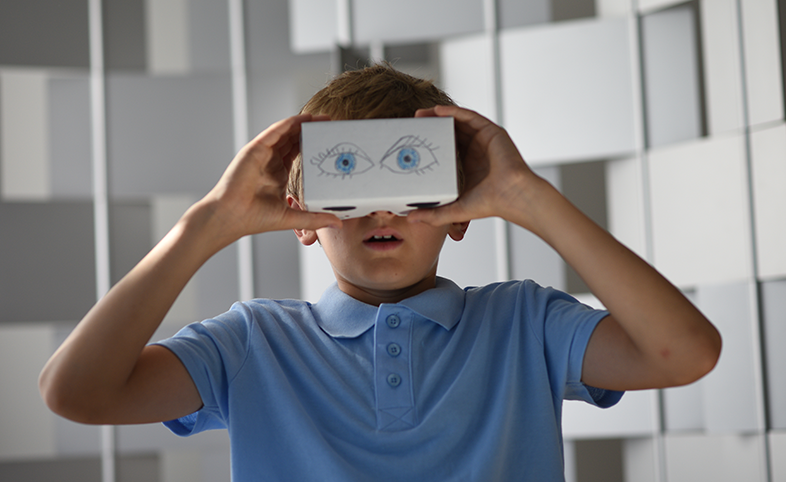To mark Children’s Mental Health Week 2023, we’re reflecting on the challenges faced by tech developers when it comes to getting digital mental health interventions in front of those that need them most. Digital therapies are not the answer for all mental health problems, or for all people, but they have the potential to play a significant role in meeting the NHS’s commitment to improving access to mental health support for young people. Despite this, the barriers to uptake of promising new technologies are significant.
A developers perspective
From a developer’s perspective, it is frustrating to find that despite the dedication, resource and creative thinking that goes into creating a novel solution they believe meets a pressing need, uptake by the NHS can be either incredibly slow or impossible due to operational barriers. This is compounded by the time it takes to build robust evidence of digital interventions in order to meet required standards.
‘’Technology is progressing at a rapid rate and can offer diverse solutions to help meet population health needs. Children and young people can find this more accessible given they are digital natives. However, there are several systemic barriers that can prevent scaling up in a timely way. This in turn can negatively affect a new tech solution’s ability to learn-improve and impact its overall lifecycle.”
Manjul Rathee, CEO & Co-founder at BFB Labs
A funders perspective
From the perspective of funders and users, there are a multitude of options to choose from, from apps to support children with anxiety and low mood, to therapeutic games, to online counselling. The market will continue to grow too, with the rise in ‘no-code’ app building platforms meaning people don’t need developer skills to create basic prototype apps. How do they know which ones are safe and effective, which are ineffective and thus waste resources, and which could be harmful? Importantly, the same questions could and should be asked of face-to-face therapeutic interventions; safeguarding children and young people is paramount regardless of how support is delivered.
Some of the most pressing research questions about digital technology for mental healthcare, which MindTech are helpfully trying to address, relate to the benefits and risks compared with face-to-face support, whether they increase or limit access to care, and how they should be evaluated and endorsed. A recent systematic review found that even when apps have the highest standard of evidence behind them, uptake is surprisingly difficult to sustain.
To try to understand some of the barriers to adoption from a wide range of perspectives, we are working with the research team at Norfolk and Suffolk NHS Foundation Trust to further evaluate Lumi Nova, a digital therapeutic game developed by BfB Labs, offering NICE-recommended psychoeducation and graded exposure therapy for children aged 7-12 years with anxiety disorders.
As well as understanding the difference Lumi Nova makes to children’s anxiety, the study will capture broader views on how digital health technologies for child mental health are implemented, and what practical steps should be taken to address the barriers that exist. We are already finding, for example, that a key part of the solution is raising awareness of the approvals tech developers have worked hard to obtain before they approach funders, such as the Digital Technology Assessment Criteria, or DTAC.
“There is increasing frustration and confusion in clinical services around the role that apps and online interventions play within clinical pathways and how best to implement them. Similar frustration exists on the part of the tech developers meaning that there seems to be an urgent need to better understand and address the barriers that all parties face. Ultimately they remain a highly promising adjunct to enhance the care offered but exactly how to do this needs to be optimised at scale. This study hopes to help unpick these difficulties and offer solutions from all sides.”
Dr Jon Wilson, Consultant Psychiatrist FRCPsych, Research Director (NSFT), Clinical Senior Lecturer (UEA) and Professor of Psychiatry (SGUSOM).
We are not alone in our endeavours to increase understanding of and access to digital technology. A growing community of tech developers, funders, clinicians, and researchers are striving to bridge the gap between promising digital support for children’s mental health, and children accessing innovation in a safe and timely way.
What’s being done?
NICE’s Early Value Assessment for Medtech aims to be part of the solution, by offering a rapid assessment of digital products, devices and diagnostics for clinical effectiveness and value for money, so that people can reap the benefit quickly. Through this assessment method, Lumi Nova was recently selected as one of five conditionally recommended digital cognitive behaviour therapies for use in the NHS, to help children and young people with symptoms of mild to moderate anxiety.
The NICE evidence standards framework for digital health technologies is also an invaluable resource for those looking to commission or deliver digital mental health support as part of their offer to children and young people.
Ultimately everyone working in this space has the same goal; to ensure children and young people get appropriate, timely, safe mental health support that they can access in many different ways, including digitally. We will share the findings from the Lumi Nova study widely in April with the aim of achieving a consensus around actions that can be taken now to narrow the gap between development and implementation of digital mental health support.
If you are interested in a discussion about how we can support evaluation and implementation of digital tools then please get in touch at Jessica.Garner@healthinnovationeast.co.uk.

Jess Garner is Principal Advisor on the Delivery team at Health Innovation East, leading a portfolio of implementation projects across the region. Jess has worked across the voluntary and health sectors for 15 years, primarily focused on children and young people’s health and wellbeing, either working to influence policy, lead research and evaluation projects, or implement innovative services.
You might also be interested in…
Share your idea
Do you have a great idea that could deliver meaningful change in the real world?
Get involved

